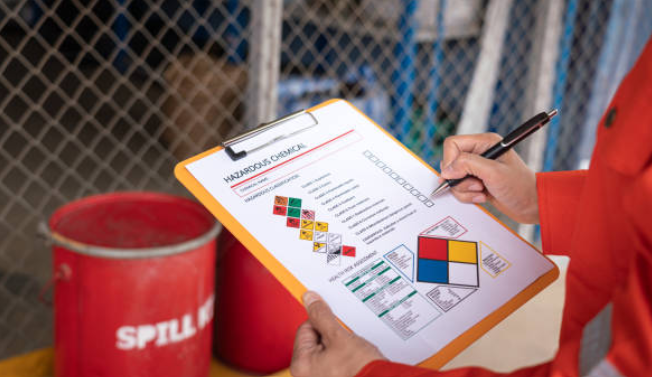Unexpected Dangers of Oil Spills at the Workplace and How to Avoid Them

Strong 8k brings an ultra-HD IPTV experience to your living room and your pocket.
Water, chemicals, and oil spills are common at workplaces. Businesses dealing with fluids are more prone to spills. They may seem harmless at first. However, they can quickly turn dangerous, especially when left unnoticed. Even a simple slip can cause serious injury or damage in the workplace.
Some spills can also lead to fires, health problems, or damage to expensive machines. Among all, oil spills are the most risky. They are hard to clean, cause slips, and often go unnoticed. If ignored, they will not only damage the machinery but also contaminate the environment.
In this article, we’ll look at the hidden dangers of oil spills and how to avoid them.
6 Unexpected Dangers of Oil Spills at the Workplace
1. Blocked Drains
Oil can flow into drains and block them. Unlike water, oil sticks to the inside of pipes and builds up over time. This can cause slow drainage, bad smells, and even pipe blockage. In some cases, oil can damage the whole water system. It may also cause flooding during heavy rain because water cannot pass through blocked drains.
Drainage issues are costly to fix and may lead to shutdowns or health risks. You can use drain cover mats to avoid this issue. This will stop oil and other fluids from entering the drainage system. Make sure you never wash oil into drains. Using drip trays and spill kits can also help with this. You should regularly check and clean your drainage system to keep it clear.
2. Slip and Fall Injuries
Oil makes the floor extremely slippery. Workers can easily lose balance and fall. This can lead to cuts, broken bones, or even head injuries. These falls can stop work and cause a lot of trouble. Slip and fall accidents are common. They often happen when oil is spilt in walkways or near machines where workers move a lot.
The best way to avoid this problem is to clean up oil spills immediately. You can use absorbent mats or pads in high-risk areas. Apart from that, you should use warning signs around the spill. This ensures that workers don’t come closer to them until it is fully cleaned.
3. Fire and Explosion Risk
Oil is a hazardous fluid as it is flammable. When it spills near hot machines, wires, or open flames, it can catch fire. If it spreads fast, the fire can grow and become an explosion. This can destroy property and harm workers. Even a small spark is enough to set oil on fire. This is one of the most serious risks in the workplace, especially in factories where machines are used all day.
The simplest way to deal with this problem is to store oil safely in closed containers. Try to keep it away from fire sources, such as wires or hot machines. Above all, make sure fire extinguishers are nearby and your staff know how to use them. This will help in controlling fire early, mitigating the risk of explosion.
4. Long-Term Health Issues
Breathing in oil fumes or touching oil is harmful to your health. Over time, it can cause skin problems, headaches, or even damage to the lungs and liver. You and your staff will not notice these problems immediately. They develop slowly and become major concerns. Constant exposure to oil fumes without safety gear can be very dangerous.
Using proper safety gear is the key to avoiding this problem. Your workers should wear goggles, gloves, and masks when handling oil. This ensures that they don’t come in direct contact with oil. Apart from that, you should focus on the ventilation of the space. Good airflow reduces problems caused by fumes.
5. Damage to Machines and Tools
Oil spills can enter machines and tools, which makes them dirty or slippery. This causes the machines to work poorly. If it gets into the moving parts, it may lead to overheating or blockage. As a result, machines stop working, cost a considerable amount to fix, and may al so cause accidents.
You should regularly inspect machines for any spills to keep them protected. If you notice any oil leak or spill, try to clean it immediately. Your team must know how to use an oil spill kit to clean spills appropriately.
6. Harm to the Environment
Oil spills can spread quickly and reach drains, soil, and nearby water sources. This can pollute the environment and harm wildlife. Once oil enters the ground or water, it becomes hard to clean.
To avoid this, you should use an oil spill kit that blocks oil from spreading. Do not let oil reach outside drains. You should also train your staff to report spills quickly and follow steps to contain and clean them safely.
Never ignore even a minor oil spill, as it can lead to the aforementioned problems. You must respond immediately and use proper tools to clean any spill before it spreads and becomes dangerous.
Note: IndiBlogHub features both user-submitted and editorial content. We do not verify third-party contributions. Read our Disclaimer and Privacy Policyfor details.







